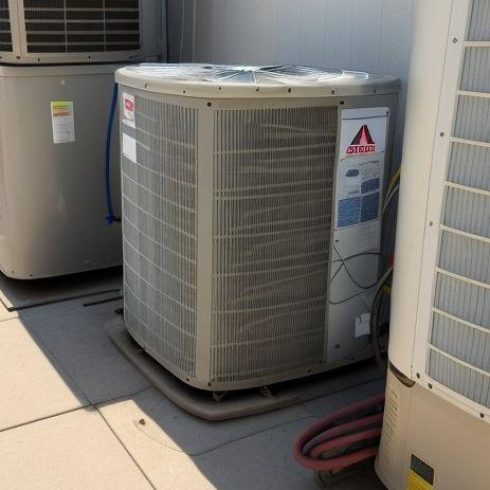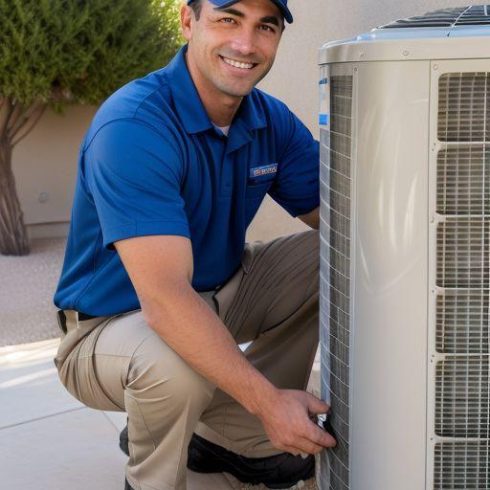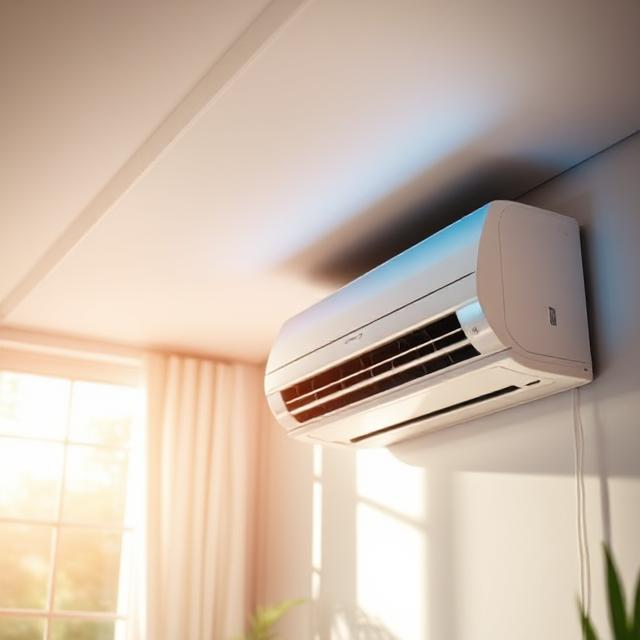Fixing Your AC When It's Not Blowing Cold Air
Introduction
Having a functioning air conditioning system is essential, especially during sweltering summer months. If your AC isn't blowing cold air, it can lead to discomfort and frustration. In this comprehensive guide, we'll explore the common issues that cause an air conditioning unit to fail and outline a step-by-step approach to fixing these problems. Whether you're a DIY enthusiast or someone who prefers to call in an expert, this guide will help you understand what’s wrong with your system and how to address it. Let’s get started!

Step-by-Step Guide: Fixing Your AC When It's Not Blowing Cold Air
Understanding Your AC System
What Are the Main Components of an AC Unit?
An air conditioning unit consists of several key parts, including:
- Compressor: This is the heart of your AC. It compresses refrigerant gas and helps cool your home.
- Condenser Coil: This coil dissipates heat outside.
- Evaporator Coil: This coil absorbs heat from the indoor air.
- Expansion Valve: Controls the flow of refrigerant within the system.
- Air Handler: This component circulates air through your home.
Understanding these components can help you troubleshoot effectively.
How Does an AC Work?
Your AC works by removing heat and humidity from indoor air. The process involves cycling refrigerant between the evaporator coil inside your home and the condenser coil outside. When everything works correctly, cool air blows into your home while hot air is expelled outside.
Identifying Common Issues with Your AC
Why is My AC Not Blowing Cold Air?
There are several reasons why your AC might not be blowing cold air:
Each of these can significantly impact your system's performance.
Checking for Refrigerant Levels
How to Check Refrigerant Levels?
To check refrigerant levels:
If levels are low, you may need a professional HVAC contractor near you to refill it.
Signs of Low Refrigerant
Common signs include:
- Ice buildup on coils
- Hissing or bubbling sounds
- Longer cooling cycles than usual
Cleaning or Replacing Air Filters
Why Are Clean Filters Important?
Dirty filters restrict airflow, causing your system to work harder than Anthem Air Conditioning: Palm Desert HVAC Contractor necessary, which can lead to increased energy bills and system failure.
How Often Should You Change Your Filters?
It's recommended to change filters every 1-3 months depending on usage and filter type.
Examining the Condenser Unit
What Happens if the Condenser is Blocked?
A blocked condenser can prevent heat from escaping, leading to poor cooling performance.
How to Clean Your Condenser Unit?
Assessing the Compressor Functionality
What Role Does the Compressor Play?
The compressor pumps refrigerant through the system; if it fails, cooling stops entirely.
Signs Your Compressor May Be Failing
Look for:
- Unusual noises (clicking or buzzing)
- Overheating
- Tripped circuit breakers
If you suspect a compressor issue, contact an HVAC contractor near you immediately.
Thermostat Troubleshooting Steps
Is My Thermostat Working Properly?
Sometimes it's just a matter of settings being off:
Electrical Issues Impacting Performance
How Can Electrical Problems Affect My AC?
Faulty wiring or tripped breakers can interrupt power supply:
- Inspect circuit breakers for tripped switches.
- Look for frayed wires or loose connections.
If you find electrical issues beyond simple fixes, reach out for help from an HVAC contractor near me.
When To Call in Professionals?
While many repairs can be done by homeowners, some situations require professional insight:
- Complex electrical issues
- Major refrigerant leaks
- Compressor failures
An experienced technician will ensure safety and efficiency in repairs.
Preventive Maintenance Tips for Your AC System
Regular maintenance can extend lifespan and efficiency:
FAQs
Q1: How often should I have my AC serviced?
A1: It's best to service your AC at least once a year before summer begins for optimal performance.
Q2: Can I recharge my own refrigerant?
A2: While it’s possible, it’s safer and often more effective to hire a professional due to potential hazards involved with handling refrigerants.
Q3: What should I do if my thermostat isn’t working?
A3: Check settings first; if still unresponsive after battery changes, consider replacing it or calling in an expert.
Q4: How do I know if my compressor is broken?
A4: Signs include unusual noises coming from your unit or no cold air coming out despite running continuously.

Q5: Can dirty filters really affect cooling performance?
A5: Absolutely! Dirty filters restrict airflow and force your system to work harder than necessary, leading to inefficiencies.
Q6: What are some common DIY fixes before calling a pro?
A6: Checking settings on thermostats, changing filters, cleaning condenser units, and ensuring circuit breakers are functioning properly are good first steps.
Conclusion
In conclusion, addressing why your AC isn’t blowing cold air doesn’t have to be overwhelming. By following this step-by-step guide—starting from basic checks like examining filters and thermostat settings—to more complex solutions involving refrigerants and compressors, you can identify issues effectively and take action accordingly. And remember—if things seem too tricky or unsafe at any point—it's always wise to call in an HVAC contractor near me who knows their stuff!
Keeping up with regular maintenance will save time and money down the line while ensuring that cool air flows when you need it most!
